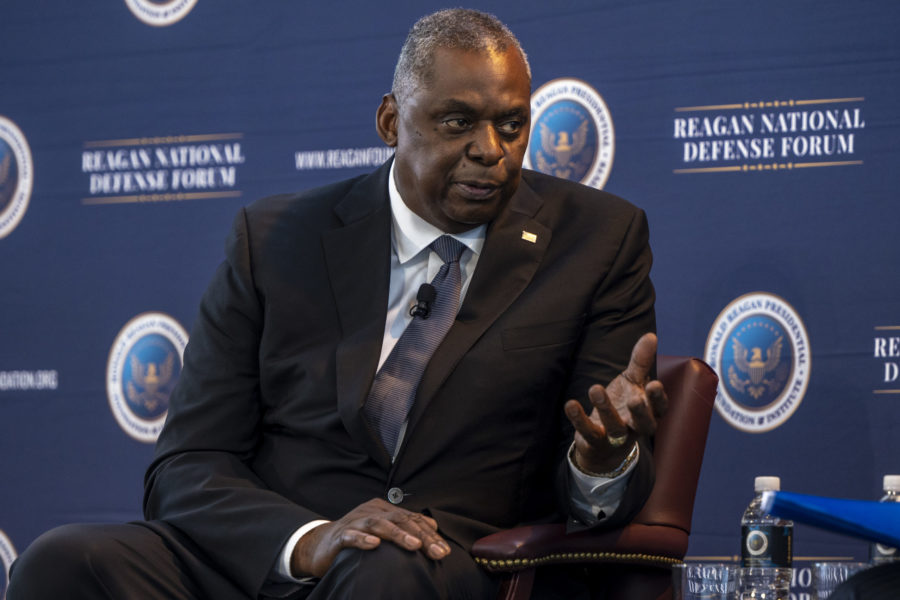Defense Secretary Lloyd J. Austin III outlined Dec. 4 the vital importance of U.S. defense investment keeping pace with that of China before issuing a statement warning that such competition would suffer “irreparable” damage if Congress opts for a yearlong continuing resolution, a real possibility being discussed by lawmakers after a second short-term fix that funds the government until mid-February.
“Some have even suggested a CR could last an entire year,” Austin said in a statement released by the Pentagon on Dec. 6.
The Secretary warned that such a continuation of current fiscal year 2021 funding would be an “unprecedented move that would cause enormous, if not irreparable, damage for a wide range of bipartisan priorities—from defense readiness and modernization, to research and development, to public health.”
Austin highlighted how a yearlong CR would stymie innovation priorities in cyber, artificial intelligence, and hypersonics.
In keynote remarks at the Reagan National Defense Forum on Dec. 4, Austin said China was uninhibited in its own defense investments and pursuits.
“China is pouring state funds into key sectors,” he said. “The PLA is rapidly improving many of its capabilities, including strike, air, missile-defense, and anti-submarine measures. And it’s increasingly focused on integrating its information, cyber, and space operations.”
President Joe Biden’s proposed defense budget includes the largest-ever investment in research and development, some $112 billion for fiscal year 2022.
Austin said that includes work on stealthy and unmanned platforms as well as improved resiliency under sea, in space, and in cyberspace. Investments such as the Pacific Deterrence Initiative, slated for $5.1 billion, would invest in 100 military construction projects, some with partners and allies in the Indo-Pacific region to improve base access and ramp up joint exercises.
But no new investments will happen with a yearlong CR.
“Not being able to start those initiatives will definitely have an impact,” Pentagon Press Secretary John F. Kirby said during a Dec. 6 briefing in response to a question from Air Force Magazine.
Kirby referred to Austin’s comments at the Reagan forum in explaining how planned DOD investments are specifically targeted to counter “the kinds of threats that could emanate from places like Russia and China.”
“I understand the interest in hypersonics, but it goes beyond that,” he said. “When you can’t start new programs, when … you don’t have that money to spend on that sort of investment, it absolutely will affect your capabilities going forward.”
